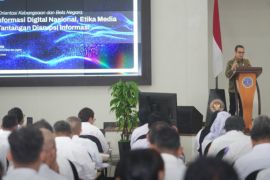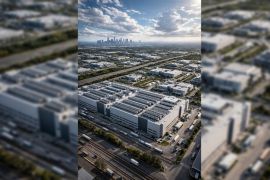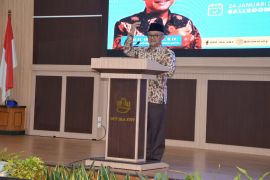"What companies usually see is an increase in revenue, because using technology is more efficient, therefore the product is more competitive, which leads to increased revenue," Kartasasmita said at an AI-related event in Jakarta on Thursday.
He emphasized that digital transformation in the industrial sector is crucial for achieving both production and efficiency benefits, adding that "Companies that adapt technology will improve relationships between companies and customers."
The Ministry of Industry is actively encouraging this transformation, partnering with 29 companies in the National Lighthouse program to advance the Making Indonesia 4.0 roadmap.
According to Kartasasmita, AI-based technology has dramatically improved accuracy in predicting raw material needs, enabling more precise procurement and faster logistics data collection between factories and headquarters.
"Distribution is also predictable, meaning logistics can be predicted. Furthermore, data flow in the production process, both at the factory and at the head office, and across departments within the factory, can be accelerated with technology, especially AI-based technology," Kartasasmita explained.
He stressed that in this era, AI is no longer considered a trend but a necessary tool, especially in the manufacturing industry. "Considering AI within Industry 4.0 technologies is crucial in the industrial sector," he noted.
However, the minister cautioned that the success of AI-based transformation is not solely determined by technological sophistication or the quality of algorithms.
"It depends on the readiness of human resources, an organizational culture that supports innovation, and effective, adaptive business process governance," he stated.
Translator: Yoanita Hastryka Djohan
Editor: Aditya Eko Sigit Wicaksono
Copyright © ANTARA 2025












